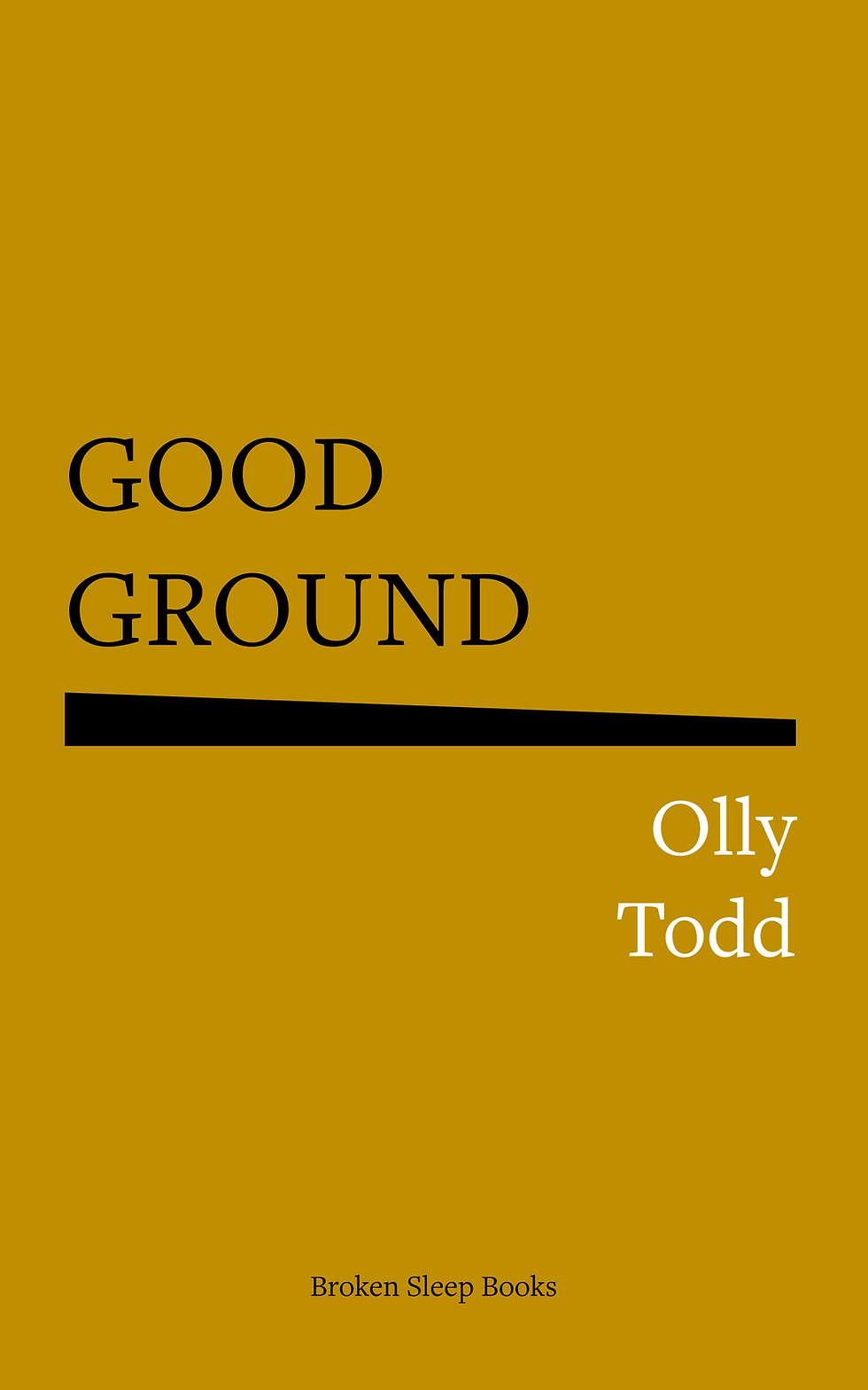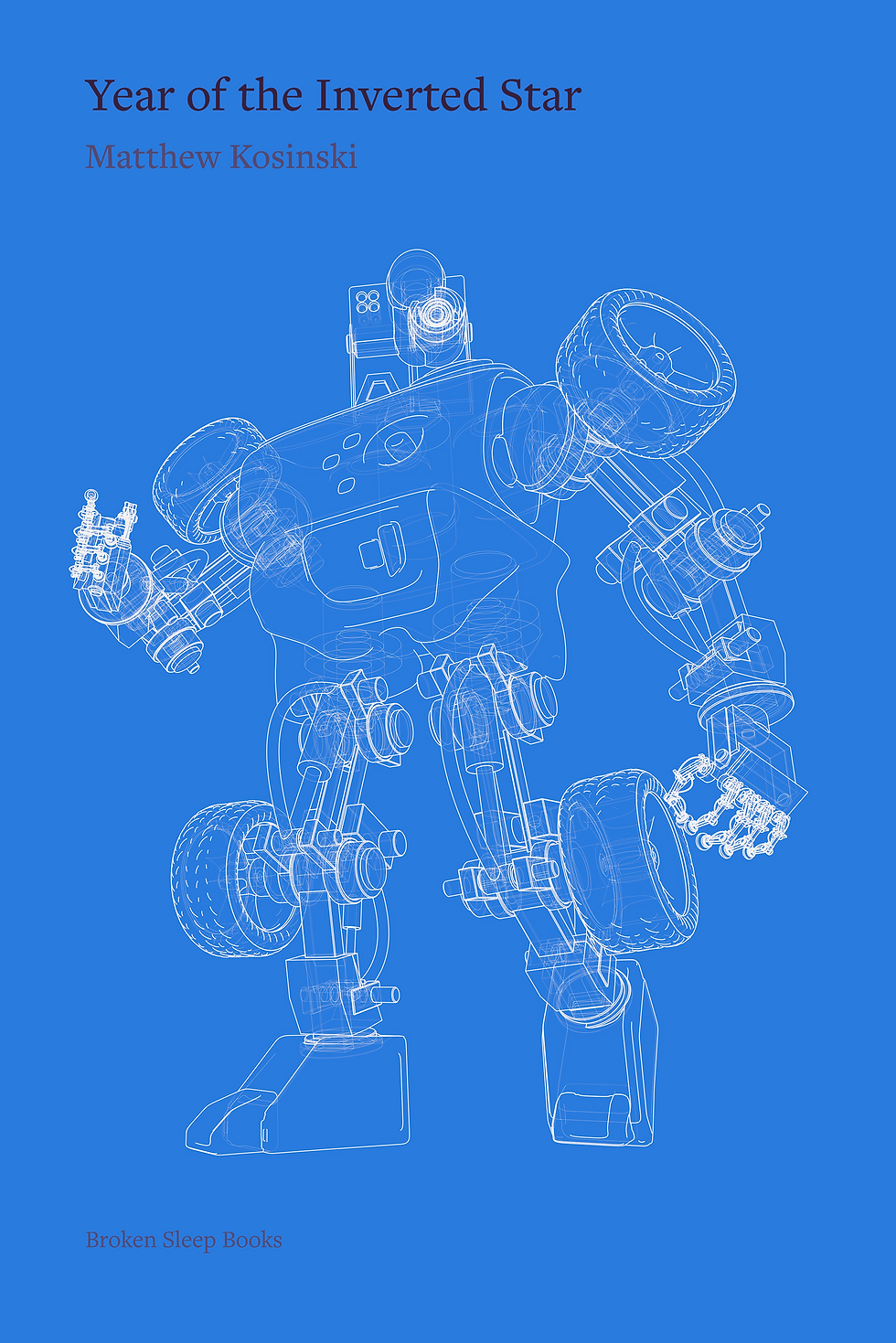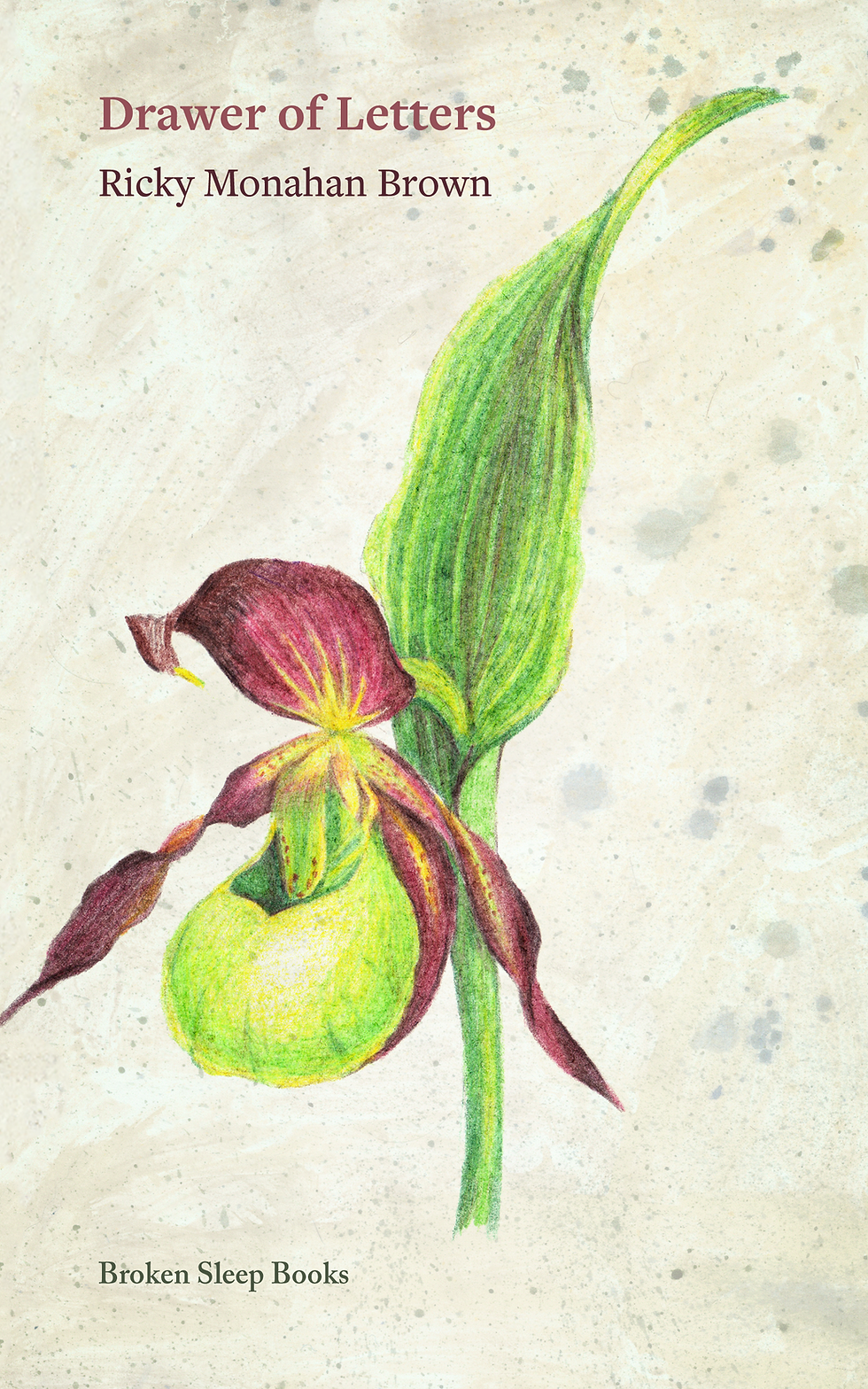Aaron Kent’s Collected Világos is a sprawling, genre-resistant archive of poetic experimentation, written under the pseudonym U. G. Világos between 2015 and 2025. Framed through a sequence of fictionalised chronologies and stylistic constraints, the work spans typographic abstraction, confessional collapse, conceptual hoaxes, and lyric shards, building a cumulative portrait of trauma, memory, grief, and creative subterfuge. The texts fold into and refract one another, often obscuring authorship in favour of disorientation, catharsis, or concealment. What emerges is not a linear narrative but an extended act of self-elegy—at once literary performance, psychological exorcism, and post-traumatic artefact.
PRAISE for Collected Világos:
Rather than a Spectrist literary hoax or metafictional game, Kent provides us with a quite moving reflection on pseudonymity, masking and revelation. Presented here as a long-lost Collected, Vilagos becomes an avatar, an alter-ego, a pocket universe with a range of concrete, sonic and disruptive strategies at his disposal, and a lengthy career in which to explore them. The invention and sheer thoroughness is bracing in itself. The paradox is that which is conceptually liberating only brings us closer to an encounter with the self; that however ornate the hall of mirrors, we're still the one racing through it.
— Luke Kennard
The enigmatic 'x' is the sign at the heart of Aaron Kent's Collected Világos, where 'x' is mobilised as an instrument of redaction and – conversely – within a bravura performative display. In the opening section of the book, 'Collected Experimentalisms 1989-1992', the hectic materiality of the 'x' signals not to erasure or absence, but summons an excess of articulation, an abundance of difficult, disfigured speech; the unsolicited anamnesis of traumatic memory.
While in later experimentalisms the 'x' gives way to a concern with the confessive limits of lyric language to operate against and within the white space of silence (socially, as well as on the page), the dual nature of the 'x' continues to haunt the poems, as the work oscillates between the desperate necessity of speaking and remembering against the impossibility of meaningfully doing so. In many ways, U. G. Világos is himself, an 'x': he is both material and spectral; alternately concealing core aspects of the author's identity and experience, and channelling them into an assured and wildly inventive performance.
Világos both is and isn't Kent: a ceremonial pseudonymous mask, and a form of shamanic possession. He emerges from this collection as more than a conceit, or a neat trick for circumventing the problems inherent in troubling/troublesome speech. He creates himself on the space of the page, intellectually entire, compelling and convincing. Ultimately, I find myself thinking of Világos as representing – as being – the triumph of propulsive creative energy over the suffocating shit of our personal histories. A kind of hysterical strength. If only for a while.
— Fran Lock
Disassociated Mass Language Churn. DMLC. The initials of the inner sea. Aaron's Magyar Grandfather reaches out to us all to ask us if we think we are expressing ourselves clearly? Whether language is more than sounds and shapes? This is a huge statement of a book that is hiding itself in plain sight. It is a book that states I can be deceitful, no one knows you can design it, but yes, I really like it. It is lyrical conceptual visual typewritual sonic collagic listal textual prosal epigraphal quotal. It is enormous John Lamb with his white knuckles. It's made of some pain too and looks it. The projector of this book is overheating on the stairs, that's really important. Major.
— SJ Fowler
PRAISE for U. G. Világos:
There’s a real risk to your risk’ and few poets have courted risk like Világos. His career confirms what many of us suspected, that U. G. wasn’t just ahead of his time, he was tearing time apart from inside the poem.
— Tris Whitmeria, Anagram Review of Books
For decades, Világos has haunted the edges of European and post-industrial lyricism, wielding poetry like a scalpel. His work reveals a writer who staged his own obliteration again and again, not as escape, but as confrontation. ‘A risk it might be yours,’ he warns, and by the end, it is.
— T. W. Pyrone Canticri, Fog-Born Voices: An Anagram Review
For readers who came of age tracing bootleg scans of Water Will Never Cry Me to Sea or the once-impossible-to-find To This: Reportage on Revolutions, etc., Világos has always felt like a reckoning. He is one of Europe’s strangest and most shamanic voices, a poet who buried and unearthed himself with each new mode, each new decade. From the frantic typewriter erasures of the early ‘90s to the ‘disintegration poems’ of his final years, Világos never stopped asking what it meant to speak or to survive speech. His infamous observation about risk, recursive and unrelenting, now reads like a thesis on authorship itself.
— Delphi Vigous, Ark of Vain Borges: New Grammar
Világos often seemed more interested in staging obscurity than earning it.
— Malta Steinwaedt
For all his talk of risk, Világos often seemed more interested in staging obscurity than earning it. He gave us a lifetime of calculated evasions, typographic masquerades, and mystic deferrals — but how much of it ever lands? At times compelling, sure. But as with many poets who mythologize themselves before the work can, one wonders: was the risk ever real, or just recursive?
— Malta Steinwaedt, Grave Ink: A Sonar Boom Review
Világos was a writer constantly in flux, ducking through stylistic wormholes and self-conjured ghosts. There are flashes of brilliance, no doubt, but as a whole, the career feels like a long exhale that never quite becomes a voice.
— Stella D. Timewant, Book-Forgers: Vain Anagram View
No serious reader of 20th-century experimental poetry can claim to understand the field without confronting The Lark Sings Wind. And few emerge unchanged.
— Sam B. Pymis, Landry & U. Heal: A Rare Dahl
Világos’s poetry is god-awful. I hate him, I hate his work, and I hate being forced to live in the same world as him.
—Steven Adamsbergh
ABOUT Aaron Kent:
U. G. Világos was the pseudonym of Aaron Kent from 2015-2025.
Aaron Kent is a working-class writer and insomniac from Cornwall. His 2nd poetry collection, The Working Classic, is available from the87press, and his debut, Angels the Size of Houses, is available from Shearsman. He has read his poetry for The BBC, The Shakespeare Birthplace Trust, and Stroke Association, and has had work published in various journals including The Poetry Review, Poetry London, and The Rialto. His poetry has been translated into languages including French, Hungarian, German, Cymraeg, and Kernewek, and has been set to music.
Aaron Kent - Collected Világos
Released 31st October, 2025
382 pages
5" x 8"
978-1-917617-93-2
RRP: £16.99 / $22.99 / €19.99

































